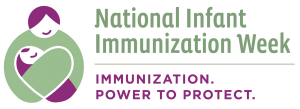CDC
Your jurisdiction’s HPV vaccination report is now available. View December 2017 report. View May 2018 report. These reports highlight your jurisdiction’s HPV–associated cancer burden in addition to distribution data for all CDC and non-CDC distributed Gardasil 9 vaccines for 2017. Please see below for more information on how to interpret the vaccine distribution data. . If you have any questions, please contact hpvquarterlyreport@cdc.gov.
HPV vaccine distribution data:
The graph on the front page of the HPV Vaccination Report indicates your jurisdiction’s progress towards a “goal” of distributing enough HPV vaccine to immunize the estimated total number of 11-year-olds in your jurisdiction. The 2015 US Census and American Community Survey were used to obtain the population estimate of 11-year-olds in your jurisdiction. Based on this estimate, CDC was able to calculate the number of doses needed to immunize this cohort in your state or city with 2 doses of vaccine. Historically in the United States, 20 percent of annual HPV vaccine doses have been distributed in the first quarter, 20 percent in the second quarter, 35 percent in the third quarter, and 25 percent in the fourth quarter. These are the benchmarks used to measure your jurisdiction’s progress each quarter. The gold arrow indicates your jurisdiction’s ordering trend last year and its progress towards distributing 100 percent of its estimated HPV vaccine doses in 2017. Data presented in this report includes all CDC and non-CDC HPV vaccine orders. Although the number of doses needed to vaccinate your 11-year-old cohort is estimated, doses that were distributed in 2017 may have been administered to individuals between the ages of 9 and 26 years.

